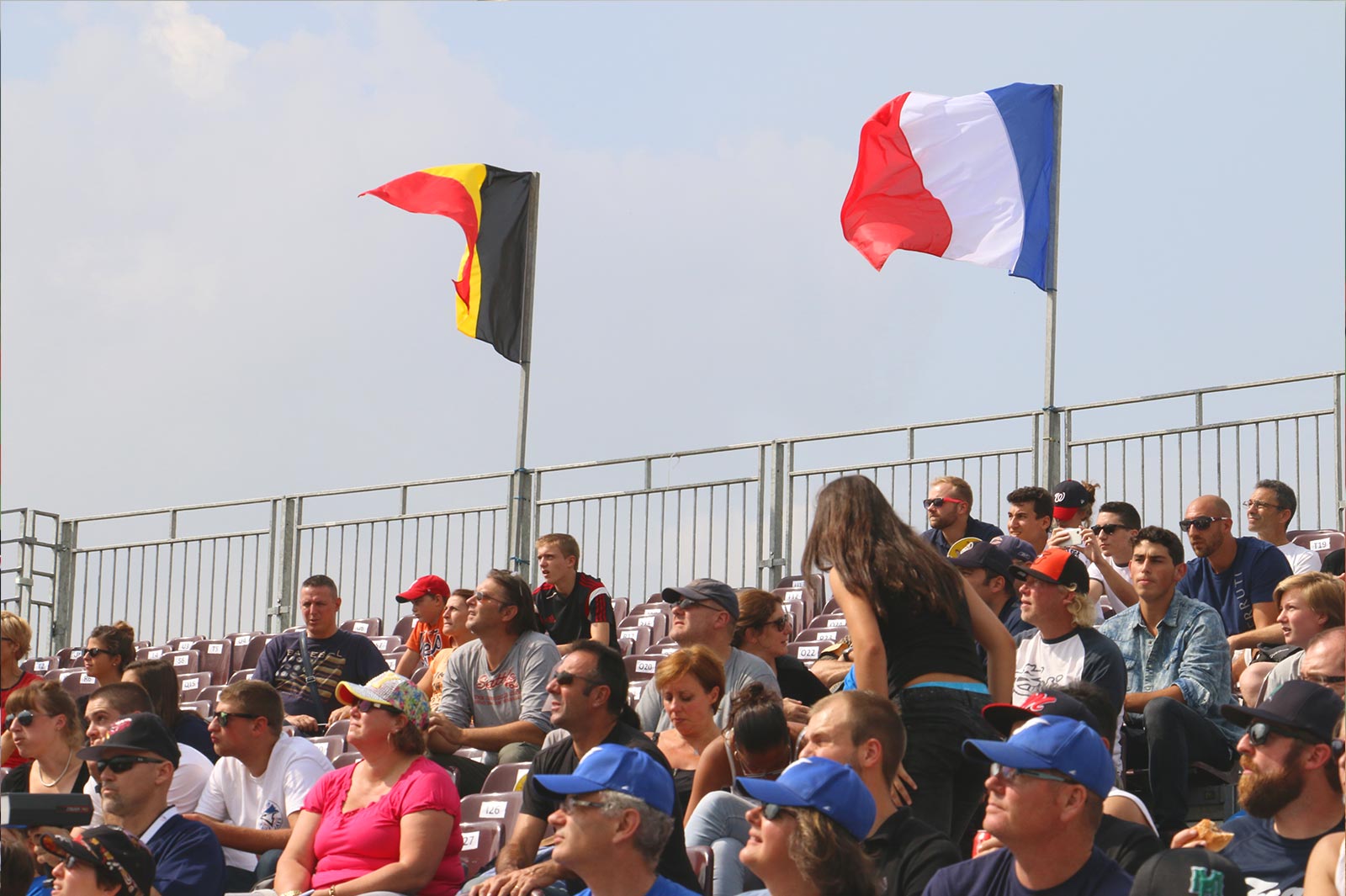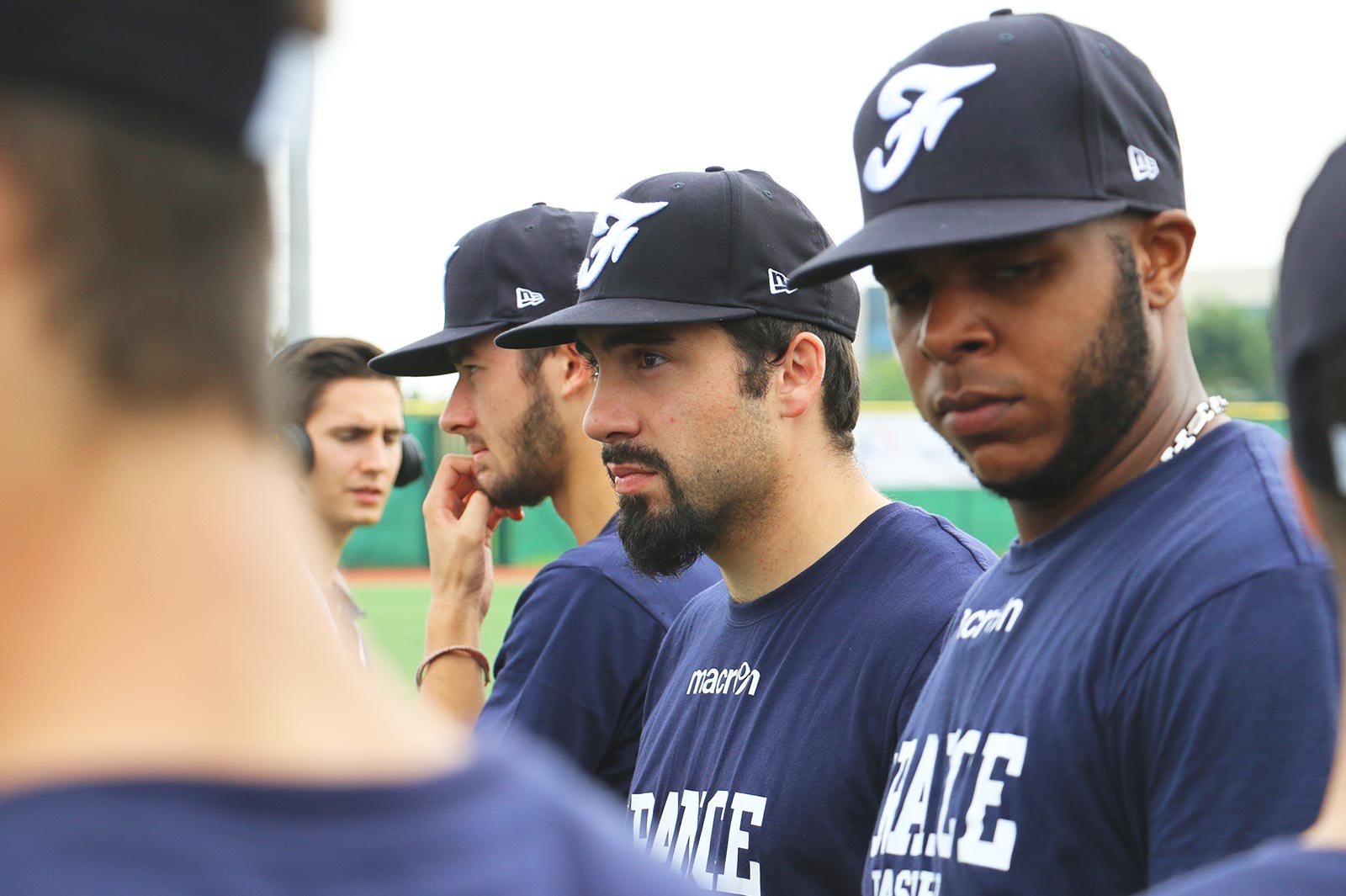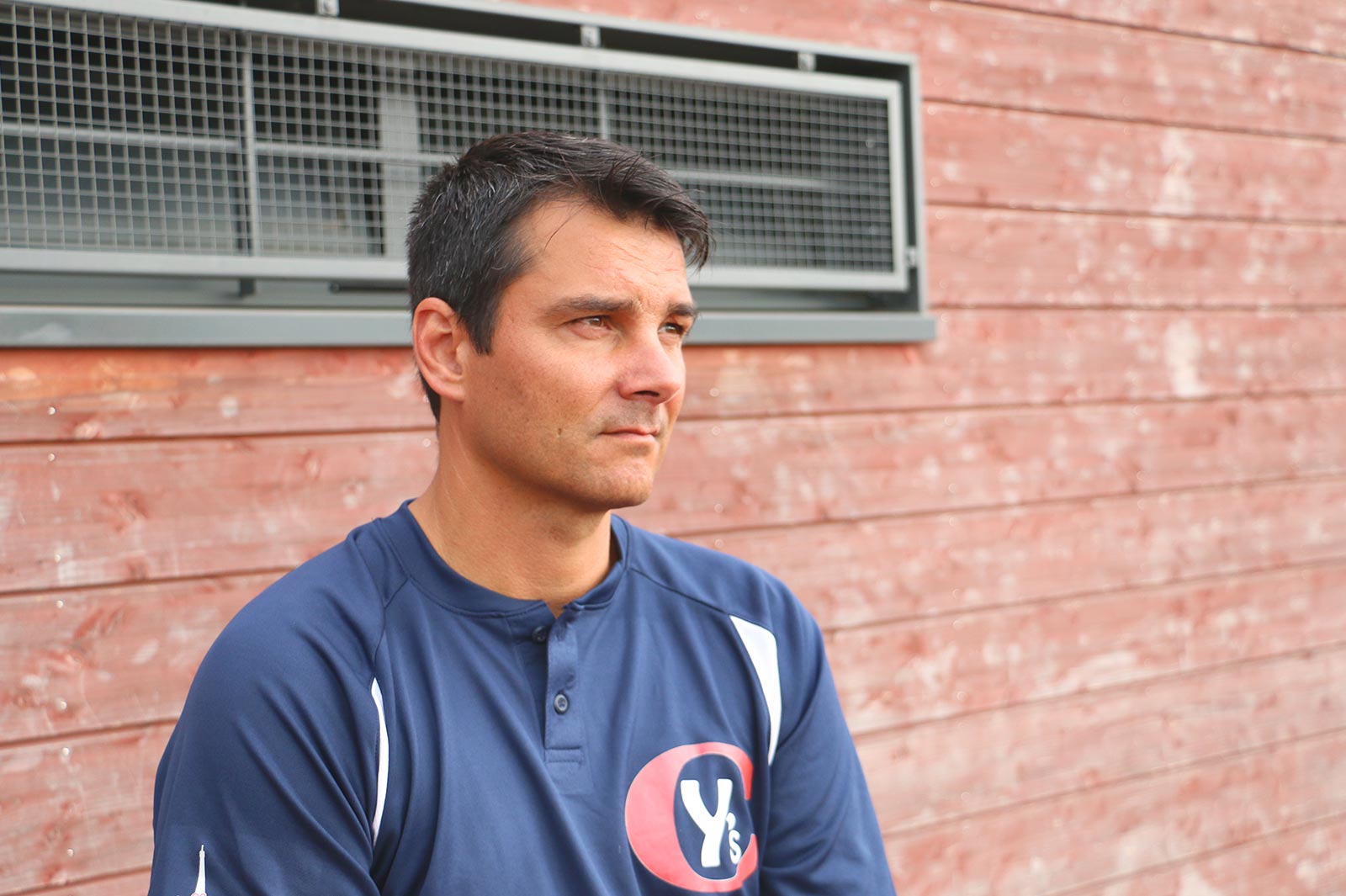
Atidy stadium with a single set of stands has become, at least for one long weekend in September, the capital of French baseball...
Located 40 km south of Paris, the field sits on the edge of a nondescript business park and one could easily drive past it without noticing. The stadium is home to the Templiers of Sénart, France’s newly-crowned baseball champions, and the site of the first ever France International Baseball Tournament.
Japan, Belgium and Holland have come here to play for little more than practice and bragging rights should they pull off a victory, but organisers hope Sénart proves to be the fertile ground for French baseball to thrive in.

Contrary to what many may think, the “old ball game” is not new to France. The country’s first baseball federation was founded in 1924 and today’s top-tier league has existed for around 50 years. But in the past five decades the sport has failed to win the kind of following European football, rugby or even basketball – like baseball, foreign imports – enjoy.
The game has seen a slight rise in popularity in recent years. Around 12,000 people – men, women and children combined – play competitive baseball across the country. Even if that figure is double what it was five years ago, the French Federation of Baseball and Softball (FFBS) knows it must create more excitement, both home and abroad, to keep up the momentum.
Exposure is the key to steady growth, and that is precisely why France has organised the tournament in Sénart. The international series is unprecedented in the country, and for many people signals a fresh start for French baseball.
The FFBS has cobbled together a national team by both grooming players at home and searching for talent across the Atlantic. There may not be any pros from the US’s Major League Baseball on Team France, but it is the country’s best squad as far back as anyone can remember.
The federation is lenient in terms of who qualifies to represent France, and the result is an exciting and demographically diverse group.

Pitcher Jonathan Mottay is a reflection of the team’s mostly young 26-man roster. Aged 20, Mottay was born in the US of French parents. Eventually he moved back to France with his family when his father’s work beckoned them home, but Mottay never gave up baseball.
He played in the southwestern city of Toulouse for a few seasons and now throws for Midland College in Texas, where he also studies business management.
Towering above six feet, René Leveret is the team’s gentle giant. The first baseman grew up on the tiny French Caribbean island of Saint Martin, but first stepped on mainland France on the eve of the tournament.
Aged 28, Leveret already has 10 seasons as a pro player under his belt, with stints in the United States, Italy and Canada. Known for his strength in the batter’s box and gentle manners, he currently plays for the Québec Capitales in Canada.
Maxime Lefevre, 23, made history in 2011 when he became the first Frenchman to join the NCAA college baseball division.
Born and raised in northern France, the infielder spent his first professional season with the Capitales in Quebec City, where he played with Leveret. He returned home last year to wear the uniform of the Huskies of Rouen, a team that has dominated French baseball in recent years.
An eclectic and promising group of players is only part of Team France’s strategy to shine at the global level. Leading the troops is Éric Gagné, a former Los Angeles Dodger who won the coveted Cy Young Trophy in 2003 as a reliever, and a World Series champion with the Boston Red Sox in 2007.
Gagné, who retired as a player in 2009, is a Quebecois by birth and now lives in Arizona with his family. The former MLB All-Star has accepted the challenge of raising France to be among the best baseball teams in Europe. More specifically, he has been entrusted to guide France to a spot in the next World Baseball Classic in 2017.
Reaching the World Baseball Classic is not a quixotic dream for the FFBS. Held every four years, the 16-team tournament gives countries an extraordinary opportunity to gain visibility in the media and collect money through television royalties.
David Meurant, the FFBS vice-president and the director of the tournament in Sénart, has no qualms about talking money. The league was around 250,000 euros in debt five years ago. Through hard work Meurant and his colleagues have cut that deficit in half while doubling membership, but the fear of another boom and bust cycle gnaws away at the former player.

Meurant says he wages daily battles to convince French authorities to invest in new baseball diamonds and upgrade existing ones. He is convinced better facilities are the way to generate wider interest in the sport among ordinary French people, which will lead to public funding and sponsors, and in turn to even better fields and stadiums.
The bureaucratic struggles and existential fears of France’s baseball league are real, but they are lost to most fans that have made their way to Sénart. Like fans anywhere, they have come only to hear the dry crack of the wooden bat, and watch a brave dash toward home plate.
Stéphan, 43, who lives in the nearby town of Saintry, brought his family for its first-ever baseball outing. He played 25 years ago as an amateur, but eventually quit baseball for other interests. As he watches France’s right fielder chase down a long pop up, he admits he misses the game. He wondered, would joining an adult league conflict with his work schedule?
Starry-eyed kids wearing blue caps cradle baseballs tiny palms along the third-base line. A game has finished with a win for the home team, and the youngsters are now angling for autographs. France may not be a baseball country today, and it may never be. But they think otherwise.

An interactive report by Joseph BAMAT for FRANCE 24
Texts and photos by Joseph BAMAT
Edited by Benjamin DODMAN
Design, graphics and development: Studio Graphique France Médias Monde
